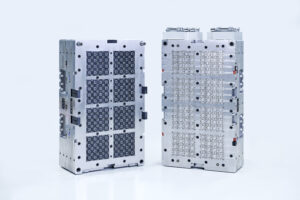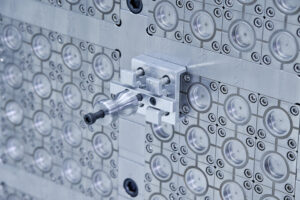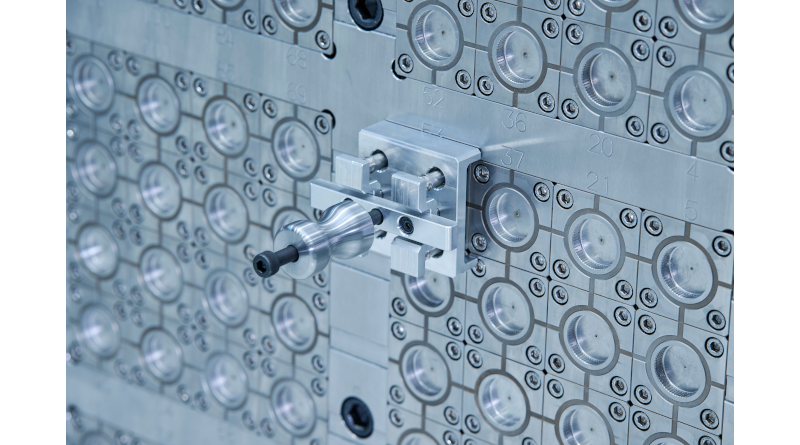128 cavities in a 1.85 seconds cycle time - Where is the limit?

Today’s packaging requirements in the beverage sector are highly demanding, especially for still water. The packaging shouldn’t cost anything more, that’s why the requirements for the design, especially the weight, are enormous. But the requirements for the output of closure systems are also high, because the production costs can kept low.
The Austrian company z-moulds has risen to this challenge and designed a 128-cavity closure mould system with a cycle time of less than 2 s. The existing 96-cavity moulds on the market operated with a cycle time of around 2 s, approaching their physical limits. The most important technical limitation was the dimensions of the mould in terms of height and mass, which reached the physical limits of the injection moulding machines. Gregor Degasperi, Business Development Manager of z-moulds, said: “Our initial idea was to stick with our existing pitch size of closure moulds at 70 mm. However, this would have required a larger machine solely due to the mould size, although a 420 t injection moulding machine has sufficient clamping force. The second approach was to circumvent the laws of physics in order to decrease the closures fall time and reduce the weight of the moving half.”

By introducing the 55 mm pitch with the existing patented z-slides, z-moulds was able to build a mould with 128 cavities and a width of 696 mm and a height of 1,196 mm. This reduced the closure’s fall height, compared to the market standard, by 500 mm, resulting in a 0.12 s decrease in fall time. In addition, the weight of the moving half was reduced by 45% compared to market standards, which contributed to a further reduction in opening/closing times of 0.08 s. These advances enable z-moulds to achieve a cycle time of 1.85 s. z-mould’s machine partner Netstal used its high-speed Elios model to achieve these results. A supplementary development was a smart tool to enable the removal and replacement of cavity inserts from front of the cavity plate within the machine, eliminating the need of pulling over the cavity plate to the cold side. This enhances efficiency and productivity. The development of these two patented innovations was made possible by the will to solve problems, to go beyond physical limits and to be inventive. They not only address specific challenges but also set a new standard for efficiency and productivity in mould development and plastic closure manufacturing.


